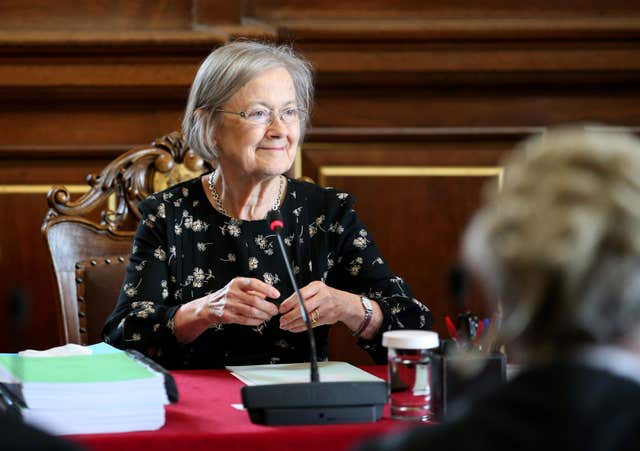
The UK’s most senior judge has suggested that her colleagues avoid “engaging in social media” because some find it difficult to “shrug off” comments from anonymous accounts.
Supreme Court president Baroness Hale of Richmond said that, while social media can be a force for good, it can also give a platform for people to leave “extremely hurtful” comments.
Giving evidence to the Lords Constitution Committee alongside her deputy, Lord Reed, Baroness Hale said: “(Social media) clearly does put a lot of pressure on some people.
“I don’t think the justices of the Supreme Court actually engage in social media. Whether that is a self-defence mechanism, whether that’s a good thing or not, I don’t know.”

Baroness Hale, who is due to stand down next year, said justices are aware of public opinion and receive newspaper cuttings, but that it does not deter them from doing their job of upholding the law.
She said: “You have to be very, very careful not to put the wrong information out there, you never know where it may get to.
“The capacity for anonymous and extremely hurtful comment to come along, you know not where…
“You can shrug it off but I think it’s not that easy, really, for people to shrug it off.
“It is very, very important that we do go about our job in accordance with our oaths, without fear or favour of affection or ill-will. Social media could distort that if we pay too much attention to that. So I’m very cautious.”
Baroness Hale earlier drew laughter from the committee when she said justices were encouraged to “supply pictures of our extra curricular activities” to the UK Supreme Court’s Instagram account, adding that content from lectures and meetings seemed to “go down very well”.
Lord Reed added that there was “more adverse and perhaps shriller adverse comment about us in the media than there would have been 20 years ago”, but said that partly reflected the tone of public debate.
He said he was particularly cautious about social media because journalists previously mined the accounts of justices’ family members while the Supreme Court was dealing with the case brought by Gina Miller and other campaigners which led to a declaration that Parliament must authorise the triggering of Brexit.
He told the committee: “If you post on it a photograph from a family wedding or something and you’re standing with a glass of champagne and a smile on your face, you know how that will be used to illustrate a story.
“So we have to be careful.”


Comments: Our rules
We want our comments to be a lively and valuable part of our community - a place where readers can debate and engage with the most important local issues. The ability to comment on our stories is a privilege, not a right, however, and that privilege may be withdrawn if it is abused or misused.
Please report any comments that break our rules.
Read the rules here